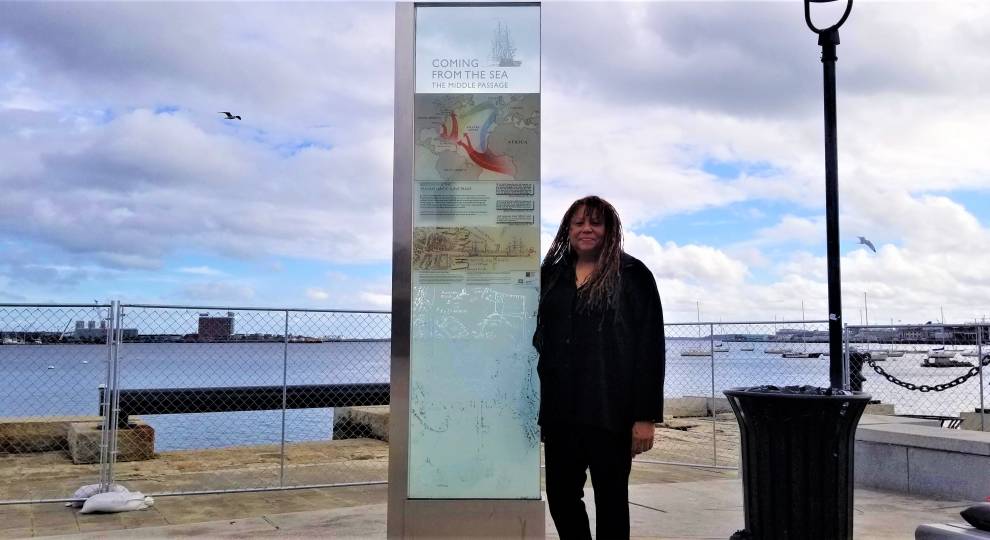In The Age of Black Lives Matter, New England Faces Its Own Role In Slavery

L’Merchie Frazier standing along side the marker on Boston’s Long Wharf dedicated to millions of enslaved Africans who died or survived the tortuous transatlantic journey to the Americas during the Middle Passage between 1619 and 1865. The “Port Marker” was the culmination of a five-year dream for Frazier, the Director of Education for the Museum of African American History. (Phillip Martin/GBH News)
L’Merchie Frazier says she was not surprised to see her event drowned out by a busy news cycle this fall.
During the week of October 12, the U.S. was experiencing dramatic increases in coronavirus cases, Amy Coney Barrett went before the Senate Judiciary Committee to discuss her Supreme COurt nomination, President Trump and Joe Biden held dueling nationally televised town halls and hundreds marched again in Boston and elsewhere asserting that Black Lives Matter.
So Frazier says she was not surprised that few locally seemed to notice the marker installed that week on Boston’s Long Wharf.
The glass and metal structure was placed near the water’s edge in recognition of the millions of enslaved Africans who died or survived the tortuous transatlantic journey to the Americas known as the Middle Passage between 1619 and 1865. The “Port Marker” was the culmination of a five-year dream for Frazier, the Director of Education for the Museum of African American History, one of the sponsors of the installation along with National Parks of Boston, Middle Passage Ceremonies and Port Markers Project, Boston Art Commission, and former State Representative and historian Byron Rushing.
Read the rest of this story at GBH’s website.
